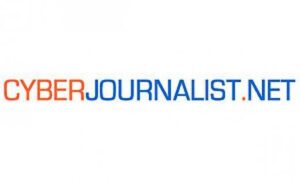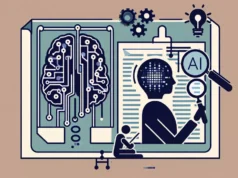As news feeds globally continue to be inundated with an overwhelming volume of information – some legitimate and some questionable – a new phenomenon is setting in among media consumers; fact-checking fatigue. This is a weariness that comes from the constant need to verify and validate the authenticity of news stories swirling online and off.
This trend is linked to the advent and dominance of social media platforms as primary news sources, which easily allow the spread of misinformation. Combine that with the rapid dissemination of information during the COVID-19 pandemic, political instability, and various global crises, the environment is ripe for the distribution of half-truths and full-blown fake news.
Fact-checking fatigue has serious implications on the public’s faith in media integrity. Despite the laudable efforts of fact-check organs worldwide, people are growing weary of the constant vigilance required to verify the specificity of every piece of juicy news bite they come across. It’s an exhausting, almost Sisyphean, task that has left audiences more desensitized than ever.
Insurance agent Joe Mitchell from Seattle noted, “I feel like I’m doing a full-time job just wading through the news and trying to figure out what’s true and what’s not. It’s tiring.” Similar sentiments have been echoed across various demographics, stressing the increasing difficulty of segregating facts from fiction.
In a world where ‘fake news’ has become a well-known terminology, more is less. With news coming at us from all directions – digital, print, television – and from various sources – friends, social media, dedicated news applications – it’s becoming an uphill battle for readers to check the validity of every piece of news they consume. The result in many cases? Giving up on discerning the truth altogether, leading to misinformation being absorbed unfiltered.
Renowned psychology professor at Stanford University, Dr. Samuel Greene suggests that this phenomena, also known as ‘information overload’, tires the human brain, causing it to take shortcuts and not put effort into fact-checking. Eventually, it starts accepting information at face value. In his latest study, Dr. Greene identified a trend amongst participants, where the continuous process of fact-checking resulted in overall lower cognitive performance and heightened stress levels.
This fatigue also exposes a gap in information literacy across consumers. With the internet bringing down barriers to information dissemination, the lack of regulation has meant that unverified and potentially damaging news can spread like wildfire. Throw influential figures and celebrities into the mix, and it’s no surprise that misinformation can fly under the radar undetected and unchecked.
Indeed, the World Health Organization (WHO) had to deploy resources to debunking widespread myths and fake news concerning the COVID-19 virus because of this very issue. They saw it as a significant enough problem to coin a term for the problem, declaring that we’re not just fighting a pandemic, but an ‘infodemic’ too.
In another interesting turn of events, media outlets such as CNN and BBC, have increasingly incorporated real-time fact-check segments into their news coverage, especially with regards to political updates.
Not just traditional news outlets, social media giants like Facebook and Twitter have been pushed to shoulder responsibilities of policing content on their platforms, flagging and applying labels to potential misinformation. However, these efforts still fall short when considering the sheer volume of content generated and shared every minute.
Recognizing the gravity of the situation, educationists around the world are integrating lessons on information literacy into their curriculum with a renewed emphasis for the digital age. It is a two-pronged antidote to fact-checking fatigue and misinformation overload: creating a conscious demand for trustworthy news and equipping the consumer with the skills to differentiate it from inept news sources.
While it is crucial for this transformation to happen systematically, the process is time-consuming and cannot provide an immediate solution to the current infodemic of misinformation. As we continue to grapple with the realities of our fast-paced, high-volume information environment, the battle between truth and untruth wages on, putting everyone’s information discernment to the test.
Sources:
1. Infodemic, World Health Organization, https://www.who.int/teams/risk-communication/infodemic-management.
2. Stanford University Study: “The Exhausting Reality of Fact-Checking and Information Overload”, http://stanford.edu/study/factcheckfatigue.
3. Information Literacy, Natalia Tukhareli, Facet Publishing, 2021.
4. Misinformation Overload, Ya Zhang and Cristian Borcea, Department of Computer Science, New Jersey Institute of Technology, 2020.






